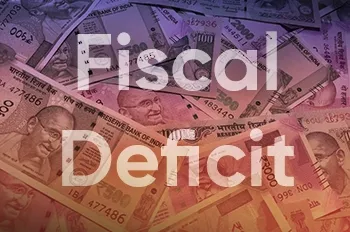India's Fiscal Deficit for First 8 Months Reaches 52.5% of Annual Target for 2024-25

New Delhi, Dec 31 (NationPress) The fiscal deficit for India during the first eight months from April to November in the current financial year has been projected at Rs 8.47 lakh crore, which equates to 52.5 percent of the annual estimate, according to data released by official sources on Tuesday.
This indicates a robust macroeconomic landscape, as the fiscal deficit remains under control with the government's commitment to a consolidation strategy.
For the initial eight months of this financial year, net tax receipts totaled Rs 14.43 lakh crore, representing 56 percent of the annual goal, an increase from Rs 14.36 lakh crore during the same timeframe last year, as per the data.
Total government spending for these eight months amounted to Rs 27.41 lakh crore, which is 57 percent of the annual target outlined in the Union Budget. This figure is higher than the Rs 26.52 lakh crore spent in the previous year during the same period.
The government's objective is to reduce the fiscal deficit to 4.9 percent of the gross domestic product (GDP) for this financial year, down from 5.6 percent in 2023-24. The fiscal deficit is targeted to be contained at Rs 16.13 lakh crore for the ongoing fiscal year.
India’s net direct tax collections, which include corporate tax and personal income tax, surged by an impressive 15.4 percent to Rs 12.1 lakh crore from April 1 to November 10 in the current financial year, according to the latest data from the Central Board of Direct Taxes (CBDT).
There has also been a significant increase in GST collections, attributed to the rise in economic activity.
The increase in tax revenues provides the government with additional resources to invest in large-scale infrastructure projects, thereby stimulating economic growth and funding welfare programs for the underprivileged. Furthermore, it aids in maintaining control over the fiscal deficit and bolstering the economy's macroeconomic fundamentals.
A reduced fiscal deficit implies that the government needs to borrow less, which results in more available funds within the banking system for large corporations to access for investment. This, in turn, fosters higher economic growth rates and job creation. Additionally, a lower fiscal deficit helps keep inflation in check, which enhances the economy's fundamentals and ensures stable growth.









